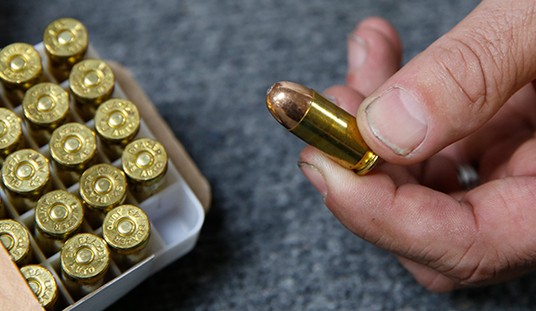Undeniable quality.
You know it as soon as you touch it. A Mercedes Benz automobile. A genuine Rolex watch. A William and Henry folding knife. The SIG P229 SAS. You don’t need a salesman to point out any features or explain why these things are a cut above. They radiate quality like the sun radiates heat and light. I felt this the moment I opened up the case containing the P229 SAS. I could also swear that I may have heard a chorus of angels singing praise… but I get that way every time I look at a new gun anyway.
I’m somewhat familiar with the standard version of the SIG P229, having handled and fired an example previously, some years ago. I liked it, but was not overly impressed with it.
Not that there was anything wrong with it. SIG has always been the benchmark of what a service handgun should be. Other gun makers aspire to the compliment "SIG-like." At the time, I considered it an unnecessary addition to the SIG line-up when you take into account the P228. Other than the 229 being in .40 caliber, I didn’t see the need or the advantage. Why not build a version of the 228 in .40? I was expecting to be less than impressed with this P229 SAS, thinking it was a regular version of the pistol with a lightened trigger. I was wrong.
Let me back up a bit and talk for a moment about the .40 S&W cartridge. We all know its history, that it is the stepchild of the 10MM cartridge that failed to please everyone at the FBI shortly after it was adopted. Not that the cartridge failed in any way, it was just too much for the FBI to handle. What can really be expected of that? The FBI is staffed mostly with lawyers, accountants and not serious shooters (outside of the FBI’s HRT group, of course). The 10MM was too much horsepower for the average agent to handle. So they hobbled the cartridge, loaded it down so it was less powerful and easier for the sissies agents to handle. Unfortunately, the weak-loaded 10MM cartridges are still the same size of the regular cartridges and they require large guns and large hands. The .40 mimicked the reduced power 10MM loads, but in a shorter cartridge, allowing them to be chambered in 9MM sized guns.
 |
Now that is where the .40 came from, but let’s look at what the .40 is. The .40 S&W cartridge is a high pressure round that delivers a sharp recoil pulse. It pushes a medium to heavy projectile at high velocity, and this in turn pushes the slide back with all the more force. This force is brisk and sharp in sound, flash and feel. I do not recommend a .40 caliber weapon for any new or timid shooter, as this will cause flinching and other bad habits that take a lot of training to overcome. While it is supposed to be the middle ground between the 9MM and the .45 size wise, it is a much more difficult cartridge to shoot well for the average shooter, or to learn with. Now, where was I?
When the .40 S&W cartridge came out, a lot of gun companies just chambered their existing 9MM automatics for the new round. SIG did not. Understanding more now than I did then, I know that SIG made the right move. 9MM guns chambered for .40 are not quite ideal because of the greater energy the .40 produces. You need a gun engineered from the ground up for the .40 in order to properly deliver a reliable and accurate handgun that won’t beat up itself or the shooter. SIG recognized this, and that’s what they did. The P229 is the product of this careful thinking. This gives us a very good platform to build up the handgun I have with me now, the SAS version.
This version of the 229 looks much less like a military spec. tool than the standard. Right off the bat you notice the two-tone finish and the nice wood grips. But it is when you pick it up that you really begin to take in all the details. For one, the wood grips are polished smooth in the right areas and cut-checkered where you need it. This is a good touch and it works especially well for concealed carry. Actually, it is almost a shame that it has to be concealed because these grips are lovely enough that you might be tempted to show them off. But don’t. Kind of like wearing silk underwear–let it be your little secret. This grip does well for CCW because it allows covering fabric (silk or otherwise) to slide over the wood easily and not snag or hang up on it. So when you move, the fabric moves too and you wont "print," keeping your secret safe. It also lets the fingers of your hand slide around the wood to get a fast and proper grip on the checkering. When firing this gun, there was not even a thought about needing more checkering. It’s done just right.
Another feature that you will notice after picking up this gun is that it is sporting a semi-custom "melt job." This is something that some people who are serious about CCW have done to their favorite guns to make them more comfortable to carry. A melt job is basically taking the gun to a belt sander and rounding off every edge that they can round off, "melting" it down like a bar of soap, but not too much. A proper melt job will not change the strength of the weapon or how it functions. It only takes the edges and corners off in order to be less unpleasant when they interact with your skin. Having carried some guns concealed and feeling the metal dig into my side as I jumped into a vehicle or had to tussle with a big, drunk guy with a hundred pound weight advantage, who falls on top of you after you spray him in the face with 10% pepper foam… well… I guess that’s another subject. But yeah, I can see where having your concealed weapon "melted" can be a blessing and a most worthy investment. It’s a custom feature that certainly has value beyond cosmetics in some situations. I’ve changed my tune on this from years ago when I considered it to be purely cosmetic. Was I wrong back then, or have my tastes changed?
Since it’s most likely to be in low light if you should need your weapon, SIG has put a tritium insert into the front sight post. This is a nice touch, and one that should be expected on a pistol in this class. Tritium in not a necessary thing for most weapons, but it is for a gun that is pretty much your final option… when you are at the end of your rope, so to speak. That little glowing bit in your front sight post could be the knot at the end of your rope. Much like my opinions of the P229, and melting… yeah, I was wrong about night sights. There was a time when I thought they were only a gimmicky add on. Snake oil. Will Rodgers didn’t have them. Well, I was very wrong about this one. Will would have if he had the choice. In 2002, I was in a little shooting competition with some friends and one stage was held at night. Military experiences involving night vision goggles and a full auto selector switch on your weapon is a little different. To say the least, I didn’t do so well on that stage. I had no idea where my front sight post was. My score indicated a clear message that I never found it. Yeah, I made some hits, but not as many as I would have liked. Team Trijicon, a team sponsored by a company that makes night sights and fantastic optical gun sights for long arms, did the same stage, and damn if they didn’t perform as if it was full daylight. Maybe even a bit better. My point for this little confessional is that I am a firm believer in night sights today. That and Team Trijicon kicks some serious booty. They are good guys too. They are even good winners. Not once did they point and laugh, but they could have. I think I might have heard a "tsk tsk tsk" sound to go along with a slow shaking of the head. No, wait a second. That was me.
The trigger on this P229 SAS is a light double-action-only design, and perhaps the best feature. A common automatic handgun has a "DA/SA" trigger, where the first shot is a double-action trigger pull. Double-action means the trigger does two jobs. First, it cocks the hammer back. Then it releases the hammer to fire the weapon. After the weapon fires and the action cycles, the hammer is caught and held in the cocked position, ready to fire again with a light and short single-action pull. Other handguns are "DAO" or double-action-only. This is where the cycled action allows the hammer to return to a safe, uncocked position. This trigger configuration sort of combines these two actions. The hammer returns with the slide, but the spring tension is arrested and the trigger reset is staged such that the following trigger pull, while being double-action, is much shorter and much lighter than a typical DAO trigger pull.
Why is this important? Because this allows the weapon to be fired more accurately, more easily than a typical DAO pistol. It doesn’t make the gun more accurate. Let me make that clear. It just allows the operator to be more accurate with it. You can’t buy proficiency. No matter how much the gun costs, it will not make you a better shooter. But it in this case, it will let you shoot to the best of your abilities without any added distractions of long and heavy trigger pulls. SIG did a fine job on this trigger. Some light double-actions can feel mushy and soft, like steering an old Cadillac Eldorado on a muddy road. This one has good feel and good communication between the action and the trigger finger. I like it. I’m not the only one to like it. I understand that this is the trigger action of choice for the Department of Homeland Security. Good choice.
So I’ve described the gun, maybe even sold a few of them. Note to SIG: You’re welcome. But I’ve not even come to the best part yet. How does it shoot? I could say that "it feels like a 9MM" and some readers will nod, knowing what I mean by that. Others who are less experienced in these things will not really grasp that. The recoil of the .40 is not very harsh at all with this gun. You don’t feel the sharp snap of recoil that can induce bad flinching habits. A very pleasant shooter. Combined with good sights and a good trigger, it is able to make holes precisely where you want the holes to appear. If you need more accuracy in your hole making applications, I suggest a scoped rifle or walking up to the target paper with a sharpened pencil and poking the holes where you want them to go .40 caliber automatics don’t get any easier to shoot well than this.
One reason for that is size. These nice wood grips are, in a word, girthy. The grip frame is long and can fit your whole hand. The slide is ample in size and weight. This is a large handgun for concealed carry duty. Thick. Thickness was the number one complaint about the Beretta Cougar, but I don’t think any Cougars are going to be calling the kettle black here. It is not a lightweight handgun either. Thanks to its alloy frame, it’s not heavy either. These are the contributing factors in making the brisk .40 feel like a fatigued 9. The recoil energy is there, but the energy is absorbed and distributed through the weapon’s grip and into your hand over a wider area, so it feels softer. Being engineered for the .40 S&W cartridge is something that is also at play here. Proper balance of slide mass vs. recoil spring weight is a factor.
Putting this all together, the SIG P229 SAS is the handgun equivalent of a Mercedes Benz CLS55 AMG. For a midsize handgun at the upper end of what you would want for concealment, it gives you all the power you need, with refinements that let you control it with luxury, sans cup holders of course. Like the Mercedes, this quality comes with high numbers on the window sticker. This SIG came with an invoice of $999.95, and this one is used. At the time of this writing, I’m not sure exactly what the NIB (new in box) price is. But let me put it this way. It is worth every penny.
Thanks to the United States Concealed Carry Association for this article. To get USCCA tactical emails free just click here and sign up.









Join the conversation as a VIP Member